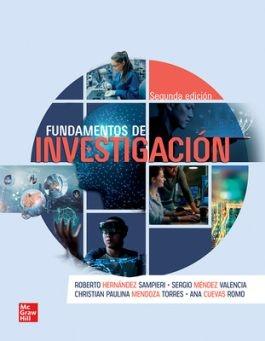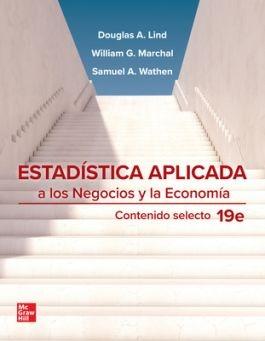Now re-issued in a new style and format, but with the same content of the Third Edition, Probability and Measure offers advanced students, scientists, and engineers and integrated introduction to measure theory and probability. Retaining the unique approach of the previous editions, this text interweaves material on probability and measure so that probability problems generate an interest in measure theory and measure theory is, then, developed and applied to probability. Probability and Measure provides a thorough coverage of probability, measure, integration, random variables and expected values, convergence of distributions, derivatives and conditional probability, and stochastic processes. In recognition of thirty-five years of publication and having impacted tens of thousands of readers, the Anniversary Edition features a new open and user-friendly design, an updated bibliography, and a revised index. Like its previous editions, thie re-issue will be well received by students of mathematics, statistics, economics, and a wide variety of disciplines that require a solid understanding of probability theory. An extensive supplement of additional notes on the problems and chapter commentaries is available, at nominal cost, either independently or as a set with the book.
FOREWORD xi PREFACE xiii Patrick Billingsley 1925-2011 xv Chapter1 PROBABILITY 1 1. BOREL'S NORMAL NUMBER THEOREM, 1 The Unit Interval The Weak Law of Large Numbers The Strong Law of Large Numbers Strong Law Versus Weak Length The Measure Theory of Diophantine Approximation 2. PROBABILITY MEASURES, 18 Spaces Assigning Probabilities Classes of Sets Probability Measures Lebesgue Measure on the Unit Interval Sequence Space Constructing s-Fields 3. EXISTENCE AND EXTENSION, 39 Construction of the Extension Uniqueness and the p-? Theorem Monotone Classes Lebesgue Measure on the Unit Interval Completeness Nonmeasurable Sets Two Impossibility Theorems 4. DENUMERABLE PROBABILITIES, 53 General Formulas Limit Sets Independent Events Subfields The Borel-Cantelli Lemmas The Zero-One Law 5. SIMPLE RANDOM VARIABLES, 72 Definition Convergence of Random Variables Independence Existence of Independent Sequences Expected Value Inequalities 6. THE LAW OF LARGE NUMBERS, 90 The Strong Law The Weak Law Bernstein's Theorem A Refinement of the Second Borel-Cantelli Lemma 7. GAMBLING SYSTEMS, 98 Gambler's Ruin Selection Systems Gambling Policies Bold Play Timid Play 8. MARKOV CHAINS, 117 Definitions Higher-Order Transitions An Existence Theorem Transience and Persistence Another Criterion for Persistence Stationary Distributions Exponential Convergence Optimal Stopping 9. LARGE DEVIATIONS AND THE LAW OF THE ITERATED LOGARITHM, 154 Moment Generating Functions Large Deviations Chernoff's Theorem The Law of the Iterated Logarithm Chapter2 MEASURE 167 10. GENERAL MEASURES, 167 Classes of Sets Conventions Involving 8 Measures Uniqueness 11. OUTER MEASURE, 174 Outer Measure Extension An Approximation Theorem 12. MEASURES IN EUCLIDEAN SPACE, 181 Lebesgue Measure Regularity Specifying Measures on the Line Specifying Measures in Rk Strange Euclidean Sets 13. MEASURABLE FUNCTIONS AND MAPPINGS, 192 Measurable Mappings Mappings into Rk Limits and Measurability Transformations of Measures 14. DISTRIBUTION FUNCTIONS, 198 Distribution Functions Exponential Distributions Weak Convergence Convergence of Types Extremal Distributions Chapter3 INTEGRATION 211 15. THE INTEGRAL, 211 Definition Nonnegative Functions Uniqueness 16. PROPERTIES OF THE INTEGRAL, 218 Equalities and Inequalities Integration to the Limit Integration over Sets Densities Change of Variable Uniform Integrability Complex Functions 17. THE INTEGRAL WITH RESPECT TO LEBESGUE MEASURE, 234 The Lebesgue Integral on the Line The Riemann Integral The Fundamental Theorem of Calculus Change of Variable The Lebesgue Integral in Rk Stieltjes Integrals 18. PRODUCT MEASURE AND FUBINI'S THEOREM, 245 Product Spaces Product Measure Fubini's Theorem Integration by Parts Products of Higher Order 19. THE Lp SPACES, 256 Definitions Completeness and Separability Conjugate Spaces Weak Compactness Some Decision Theory The Space L2 An Estimation Problem Chapter4 RANDOM VARIABLES AND EXPECTED VALUES 271 20. RANDOM VARIABLES AND DISTRIBUTIONS, 271 Random Variables and Vectors Subfields Distributions Multidimensional Distributions Independence Sequences of Random Variables Convolution Convergence in Probability The Glivenko-Cantelli Theorem 21. EXPECTED VALUES, 291 Expected Value as Integral Expected Values and Limits Expected Values and Distributions Moments Inequalities Joint Integrals Independence and Expected Value Moment Generating Functions 22. SUMS OF INDEPENDENT RANDOM VARIABLES, 300 The Strong Law of Large Numbers The Weak Law and Moment Generating Functions Kolmogorov's Zero-One Law Maximal Inequalities Convergence of Random Series Random Taylor Series 23. THE POISSON PROCESS, 316 Characterization of the Exponential Distribution The Poisson Process The Poisson Approximation Other Characterizations of the Poisson Process Stochastic Processes 24. THE ERGODIC THEOREM, 330 Measure-Preserving Transformations Ergodicity Ergodicity of Rotations Proof of the Ergodic Theorem The Continued-Fraction Transformation Diophantine Appr

 (0 Comentarios)
(0 Comentarios)






